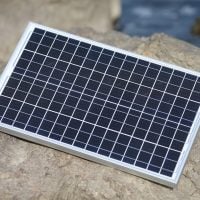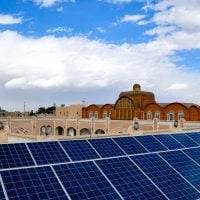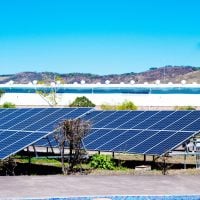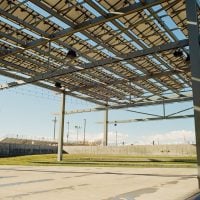In an era where climate change and environmental degradation are pressing global issues, renewable energy research grants have emerged as a vital resource for advancing sustainable energy solutions. These grants are designed to support innovative projects that explore new technologies, improve existing systems, and promote the adoption of renewable energy sources. For NGO professionals, understanding the landscape of renewable energy research funding is crucial, as it opens doors to potential partnerships, collaborations, and funding opportunities that can significantly enhance their initiatives.
Renewable energy research grants not only provide financial support but also foster a culture of innovation and collaboration among researchers, NGOs, and industry stakeholders. By tapping into these resources, organizations can contribute to the development of cleaner energy solutions that benefit communities and the environment alike. This article aims to provide a comprehensive overview of renewable energy research grants, including their importance, eligibility criteria, application processes, and the types of projects they fund. Are You Working on Solar Innovation or Clean Energy Access? Join us to receive updates.
The Importance of Renewable Energy
The significance of renewable energy cannot be overstated in today’s world. As fossil fuel reserves dwindle and the consequences of climate change become increasingly evident, transitioning to renewable energy sources such as solar, wind, hydroelectric, and geothermal power is essential for sustainable development. Renewable energy not only reduces greenhouse gas emissions but also enhances energy security by diversifying energy sources and reducing dependence on imported fuels.
Moreover, investing in renewable energy has far-reaching economic benefits. It creates jobs in manufacturing, installation, and maintenance of renewable energy systems while stimulating local economies. For NGOs focused on community development, promoting renewable energy can lead to improved access to electricity in underserved areas, enhancing quality of life and enabling economic opportunities.
By championing renewable energy initiatives, NGOs can play a pivotal role in driving the transition towards a more sustainable future.
Overview of the 20 Donors Offering Grants
A diverse array of donors provides funding for renewable energy research projects, ranging from government agencies to private foundations and international organizations. These donors recognize the critical need for innovative solutions to address the challenges posed by climate change and energy scarcity. Some notable examples include the U.S.
Department of Energy (DOE), which offers various grant programs aimed at advancing clean energy technologies; the European Commission’s Horizon Europe program, which funds research and innovation across Europe; and the Global Environment Facility (GEF), which supports projects that promote sustainable development. In addition to these larger entities, numerous private foundations and corporate sponsors are increasingly investing in renewable energy research. Organizations like the Rockefeller Foundation and the Packard Foundation have established grant programs specifically targeting clean energy initiatives.
Furthermore, many local governments and regional organizations also offer grants tailored to support community-based renewable energy projects. By exploring these diverse funding sources, NGOs can identify opportunities that align with their mission and project goals.
Eligibility Criteria for Renewable Energy Research Grants
Eligibility criteria for renewable energy research grants can vary significantly depending on the donor and the specific grant program. Generally, applicants must demonstrate a clear alignment with the donor’s mission and objectives. For instance, some grants may prioritize projects that focus on specific technologies or geographic regions, while others may emphasize community engagement or capacity building.
In many cases, eligibility extends to a wide range of entities, including non-profit organizations, academic institutions, research centers, and even private companies. However, applicants often need to provide evidence of their expertise in renewable energy research and demonstrate their ability to effectively manage grant funds. Additionally, some donors may require partnerships with other organizations or stakeholders to enhance project impact and sustainability.
Understanding these criteria is essential for NGOs seeking to secure funding for their renewable energy initiatives.
Application Process for Renewable Energy Research Grants
The application process for renewable energy research grants typically involves several key steps that require careful planning and attention to detail. First and foremost, potential applicants should thoroughly review the grant guidelines provided by the donor organization. This includes understanding the funding priorities, eligibility requirements, and specific application deadlines.
Once familiar with the guidelines, NGOs should develop a compelling project proposal that clearly outlines their objectives, methodology, expected outcomes, and budget. A well-structured proposal not only demonstrates the feasibility of the project but also highlights its potential impact on renewable energy advancement. Many donors also require letters of support from partners or stakeholders, which can strengthen the application by showcasing collaboration and community engagement.
After submitting the application, organizations may need to be prepared for follow-up questions or requests for additional information from the donor. This stage is crucial for building rapport with funders and demonstrating commitment to transparency and accountability.
Types of Projects Funded by the Donors
Donors supporting renewable energy research grants fund a wide variety of projects that address different aspects of clean energy development. Some common types of projects include technological innovations aimed at improving efficiency in solar panels or wind turbines, research on energy storage solutions that enhance grid reliability, and studies focused on integrating renewable energy into existing infrastructure. Additionally, many donors prioritize projects that promote social equity and community engagement in renewable energy initiatives.
This can include programs that educate local populations about clean energy technologies or initiatives that empower marginalized communities to participate in renewable energy production. By funding diverse projects that encompass both technological advancements and social considerations, donors contribute to a holistic approach to renewable energy development.
Case Studies of Successful Grant Recipients
Examining successful case studies can provide valuable insights for NGOs seeking renewable energy research grants. One notable example is a project funded by the U.S. Department of Energy that focused on developing advanced solar panel technology with increased efficiency rates.
The project not only resulted in significant technological advancements but also created job opportunities in the local community through training programs for technicians. Another inspiring case study involves a grassroots organization that received funding from a private foundation to implement a community-based wind energy project in a rural area. The initiative not only provided clean electricity to households but also engaged local residents in the planning and implementation process.
This participatory approach fostered a sense of ownership among community members and ensured the project’s long-term sustainability. These examples illustrate how successful grant recipients have effectively leveraged funding to drive innovation while simultaneously addressing community needs.
Impact of Renewable Energy Research Grants on Innovation
Renewable energy research grants play a pivotal role in fostering innovation within the clean energy sector. By providing financial resources for experimental projects and cutting-edge research, these grants enable researchers and organizations to explore new ideas without the constraints typically associated with traditional funding sources. This freedom encourages creativity and risk-taking, leading to breakthroughs that can transform the renewable energy landscape.
Moreover, grants often facilitate collaboration between academia, industry, and non-profit organizations, creating a dynamic ecosystem where knowledge sharing and cross-pollination of ideas can thrive. Such collaborations can lead to accelerated advancements in technology development and deployment while ensuring that solutions are grounded in real-world applications.
Challenges and Opportunities in Renewable Energy Research
While there are numerous opportunities associated with renewable energy research grants, challenges persist as well. One significant hurdle is the competitive nature of grant applications; many organizations vie for limited funding resources. This competition necessitates that NGOs develop strong proposals that clearly articulate their unique value propositions and demonstrate their capacity for successful project execution.
Additionally, navigating complex grant requirements can be daunting for some organizations, particularly smaller NGOs with limited administrative resources. However, these challenges also present opportunities for capacity building within organizations as they learn to refine their project management skills and enhance their ability to secure funding.
Future Trends in Renewable Energy Research Funding
As global awareness of climate change continues to grow, future trends in renewable energy research funding are likely to reflect an increasing emphasis on sustainability and resilience. Donors may prioritize projects that not only advance technology but also address social equity issues related to access to clean energy. This shift could lead to more funding opportunities for initiatives that empower marginalized communities or promote inclusive participation in renewable energy development.
Furthermore, as technological advancements continue to evolve rapidly, there may be a greater focus on interdisciplinary approaches that integrate insights from various fields such as engineering, social sciences, and environmental studies. This holistic perspective could drive innovative solutions that address complex challenges associated with transitioning to a sustainable energy future.
Tips for Securing Renewable Energy Research Grants
For NGOs seeking to secure renewable energy research grants, several actionable tips can enhance their chances of success. First and foremost, it is essential to conduct thorough research on potential donors to identify those whose priorities align with your organization’s mission and project goals. Tailoring proposals to reflect these priorities can significantly increase the likelihood of funding approval.
Building strong partnerships with other organizations or stakeholders can also strengthen grant applications by demonstrating collaboration and shared expertise. Additionally, engaging with local communities throughout the project development process can enhance proposals by showcasing community support and involvement. Finally, maintaining clear communication with funders during the application process is crucial for building trust and transparency.
By following these tips and remaining persistent in their efforts, NGOs can position themselves as strong candidates for securing renewable energy research grants that drive meaningful change in their communities.
In addition to the “20 Donors Offering Renewable Energy Research Grants,” organizations and individuals interested in funding opportunities might also consider exploring other related initiatives. For instance, the European Union is actively seeking proposals for its Labour Market Inclusion Project in Albania, which aims to enhance employment opportunities and foster economic growth. This project, while not directly focused on renewable energy, aligns with broader goals of sustainable development and economic resilience. For more information, you can visit the Call for Proposals: European Union for Labour Market Inclusion Project in Albania. This initiative highlights the diverse range of funding opportunities available for projects that contribute to sustainable and inclusive development.









































